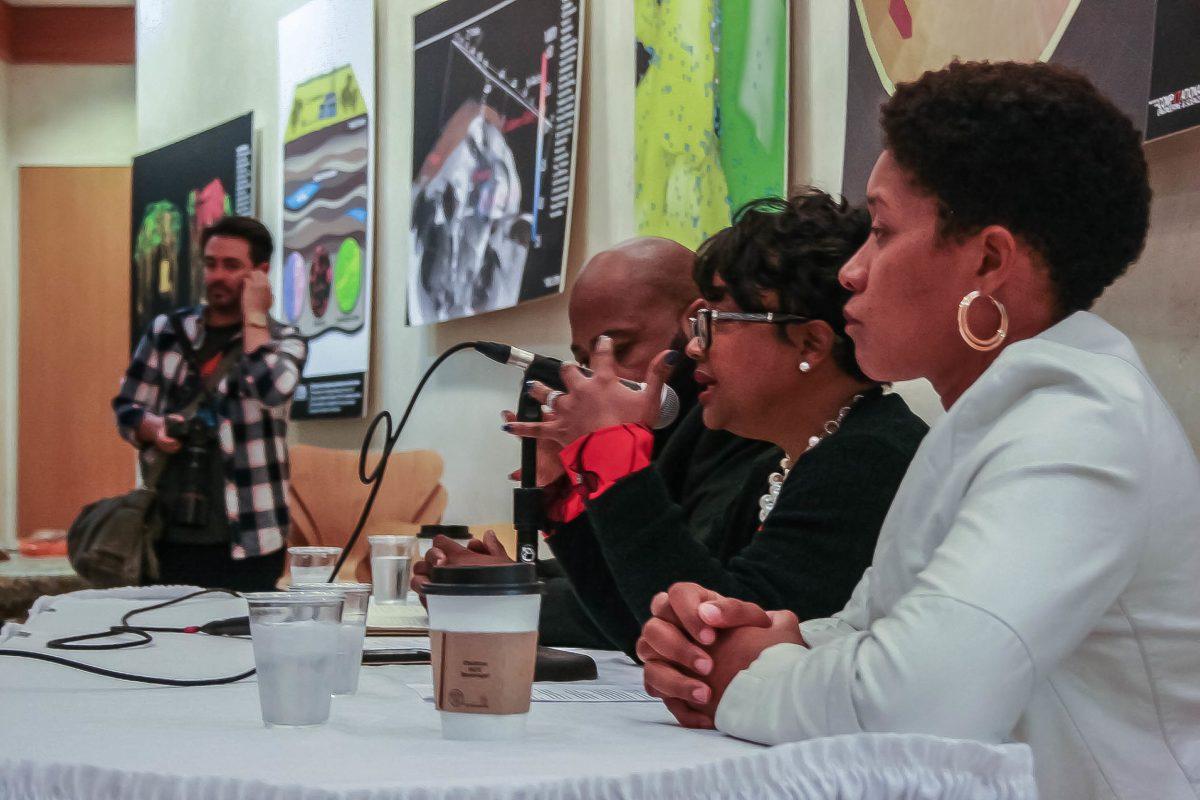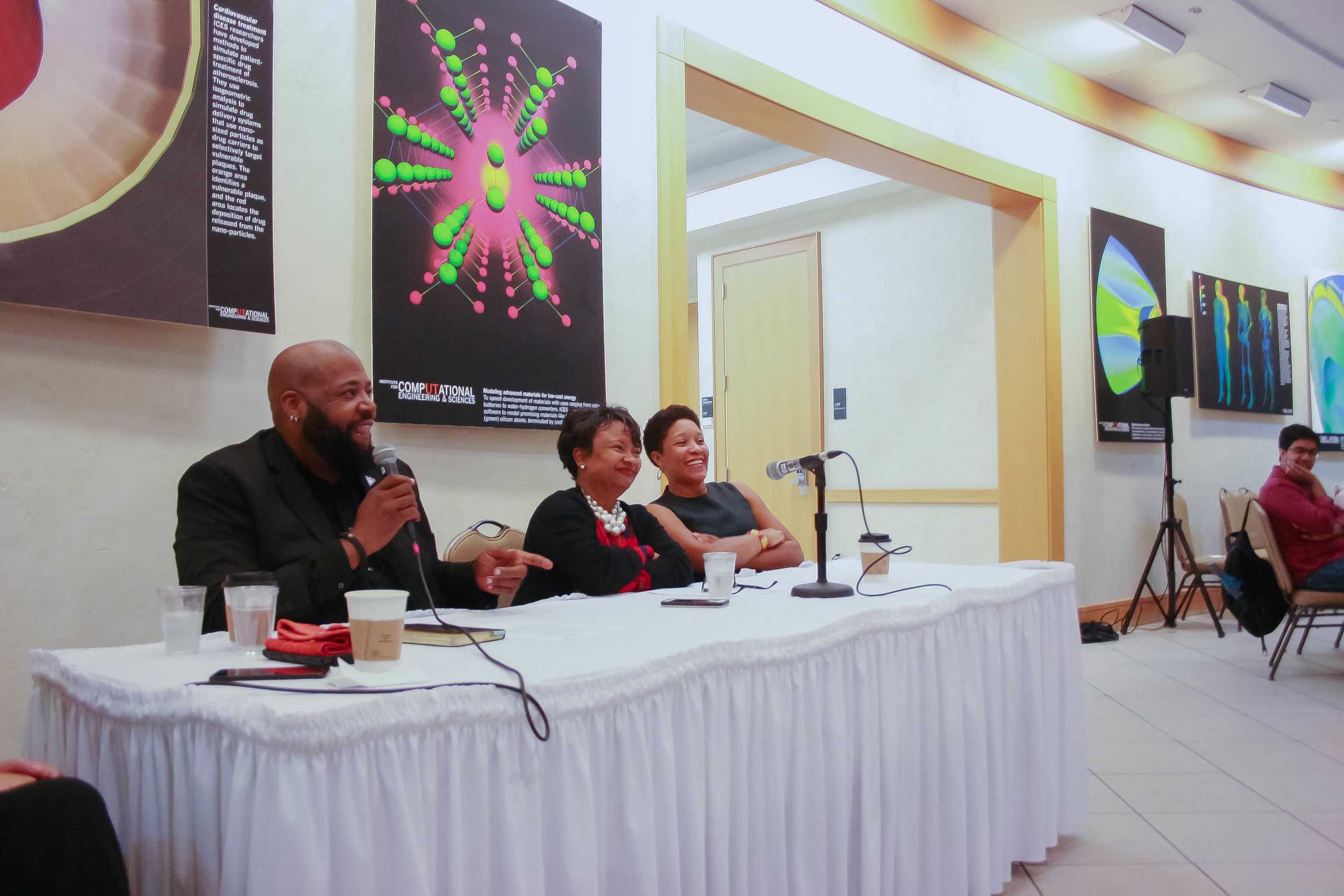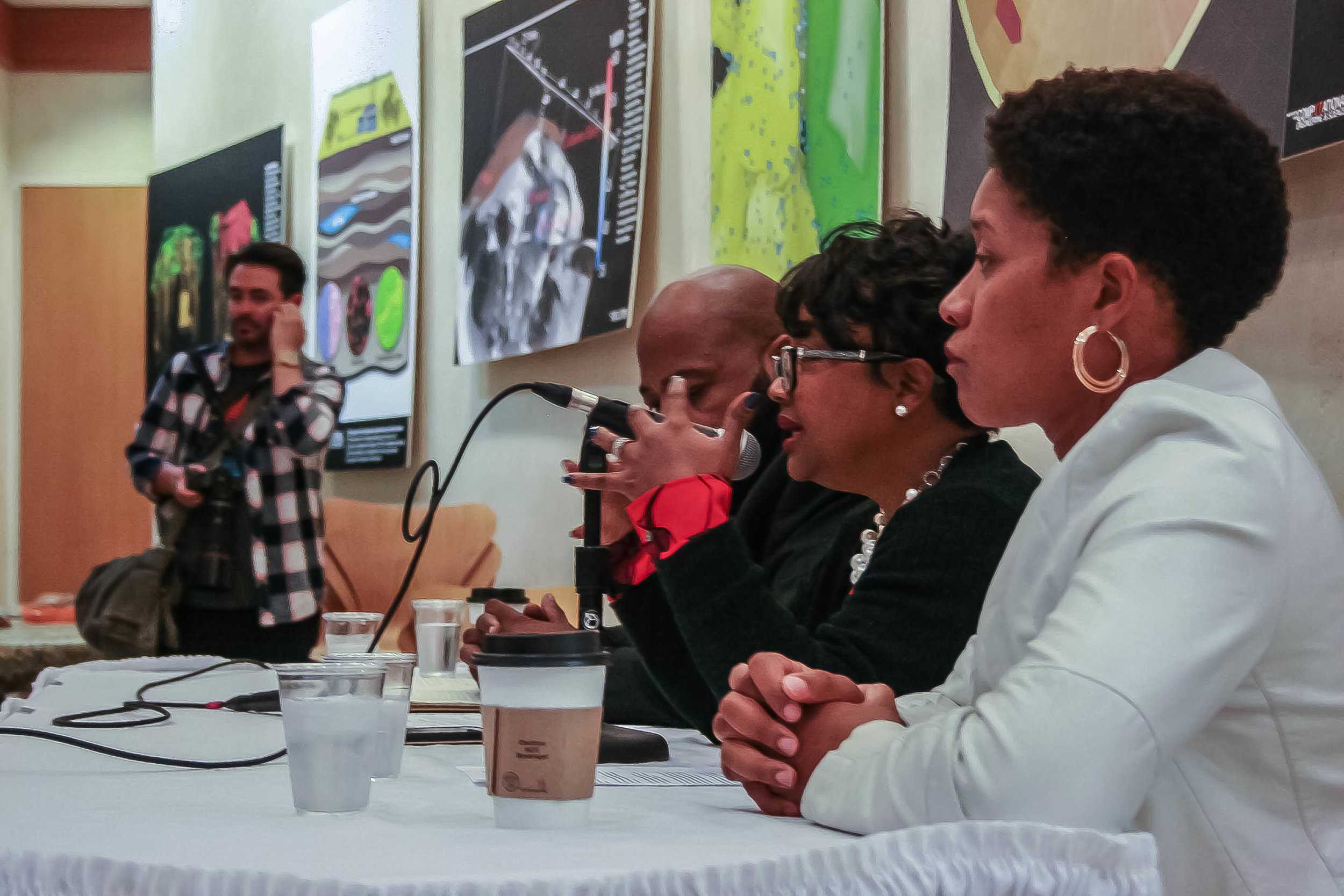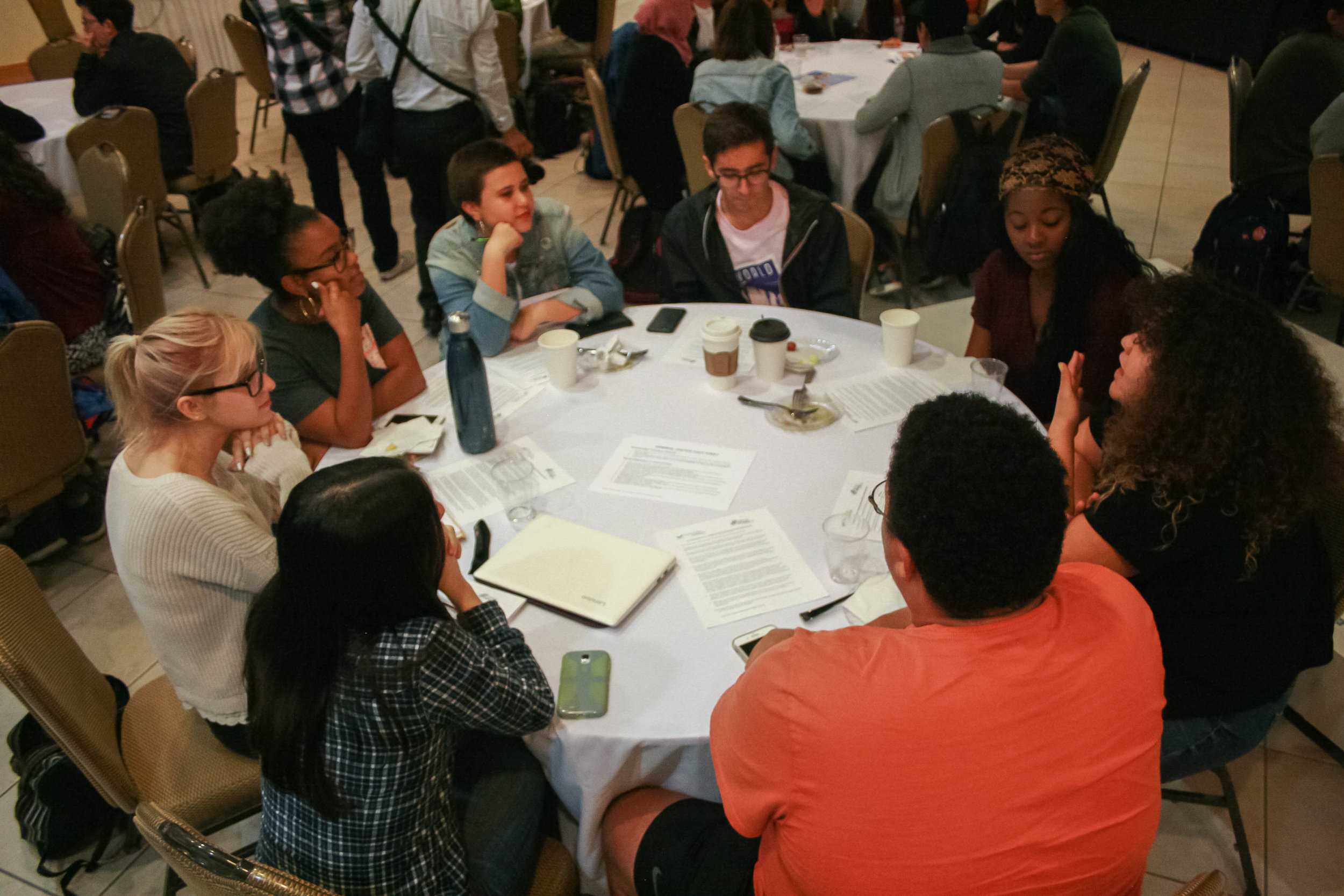Lewis Conway (left), Dr. Courtney Robinson (middle) and Dr. Christen Smith (right) share a laugh during the discussion of race and the criminal justice system.
On Oct. 30, dozens of students, activists and Austin community members gathered to discuss the heavy implications of racism that persist in the United States and its criminal justice system.
Story by William Kosinski
Photos by Christiana Sullivan
The event, entitled “Going In, Getting Out: Race and Incarceration in the U.S.,” was hosted by the Humanities Institute at the University of Texas at Austin as part of their biannual Difficult Dialogues Forum. The event included three panelists that help lead Austin-based projects to change how the government deals with crime and punishment.
Prior to the discussion with panelists, attendees watched “13th,” a documentary that outlines how the constitutional amendment for which the documentary is named after promotes the issue of mass incarceration. Slavery has not gone away, according to the panelists. It only evolved into the current prison system. “Ever since this nation has existed, this form of incarceration, either in the form of slavery or in the form of the prison system, has disproportionately impacted African Americans,” says Christen Smith, an associate professor of African and African diaspora studies and anthropology at UT. “Many times those people are affected beyond belief. In many ways, just as those who are incarcerated lose their livelihood and lose their ability to gain income, the families often lose everything.”
Corporate communications sophomore Matthew Mosley also attended the event and had thoughts on the ideas discussed. “I have cousins who I have been in contact with who have gone through this system and it is just so hard for them to find jobs,” Mosley says. “There are so many ways that this system impacts the families of those that are convicted, not just those that are convicted.”
African Americans have a one in three chance of being incarcerated while their white counterparts have a one in 17 chance, according to the film. Additionally, African Americans account for 37.9 percent of prisoners but only 13.3 percent of the country’s population. The overrepresentation of African Americans is designed to keep the community marginalized, according to Criminal Justice Organizer Lewis Conway, Jr. of Grassroots Leadership. “I did eight years in prison,” Conway says. “They gave me $50 and a bus ticket. It took me 15 years to find a job. They have no problem using slave labor [in prisons], but we have a problem with employing people once they come out.”
This system of mass incarceration as a means to keep African Americans oppressed is not a new concept. “Brown vs. Board of Education was in 1954. Texas refused to integrate,” Courtney Robinson, the Founder of the Excellence and Advancement Foundation, says. “At the moment of integration in 1958, we joined our school system and our juvenile justice system. For us, it is clear that race, school and prison are connected.”
Panelist Dr. Courtney Robinson expands on the topics of black criminalization and incarceration.
Schools are only one of the systems designed to support the prison system in America, according to Robinson. “Structural racism has been around for as long as this country has been around,” Robinson says.
The issue has never been dealt with appropriately, according to Smith. “We decided that we were going to integrate Black folk into the United States as opposed to acknowledging the need for Black folks to have rights. Instead of dealing with the problems that we had as a racist country, we decided that we wanted to pretend that whatever happened was in the past and it just wasn’t existent anymore.”
Change must begin by recognizing our implicit biases, according to the panelists. Conway describes the difficulties he faces as a large African American man in a society that portrays him as intimidating. “What can we do so I don’t feel like that?” Conway asks.
It might not be easy to have these conversations in community. “You have to be able to do some soul searching about what you do every day,” Smith says. “This means you have to actually stop and think every time you look at a Black person and cringe, or look at a Black child and don’t think they’re as cute as the other children in the room, or reproduce stereotypes or make assumptions.”
A number of students attended the event and engaged in the dialogue amongst themselves before posing questions to the panelists.
The next step is pushing an uncomfortable conversation into the faces of those who do not want to hear them. Building on this idea, Conway notes the repetitive nature of this conversation about racism. “Before I felt kind of uncomfortable about it, but now I don’t apologize for being Black,” Conway says. “Black folks have to stop apologizing, and white folks have to start using their privilege in a proactive way.”
Many in the UT community are already taking action. Amnesty International is a worldwide organization advocating for human rights as they pertain to a variety of issues. UT’s chapter is focused on Rodney Reed, an inmate on death row in Texas for a crime that many believe he did not commit.
Jensen Soderlund is a government sophomore who serves as the chapter’s urgent action coordinator. “Reed was charged with [murder] because of the overall system of criminal justice and incarceration in America, which is putting African American men in prison as a way to keep them under control and marginalize them,” Soderlund says.
The organization marched at the Capitol during the annual March to Abolish the Death Penalty. Spreading awareness and writing letters to those in positions of power are two of the actions taken to change outcomes. According to the organization’s president, Alisa Hernandez, Reed is part of a larger system. “He is someone who represents something that is going on all around the country and around the world,” Hernandez says.














































